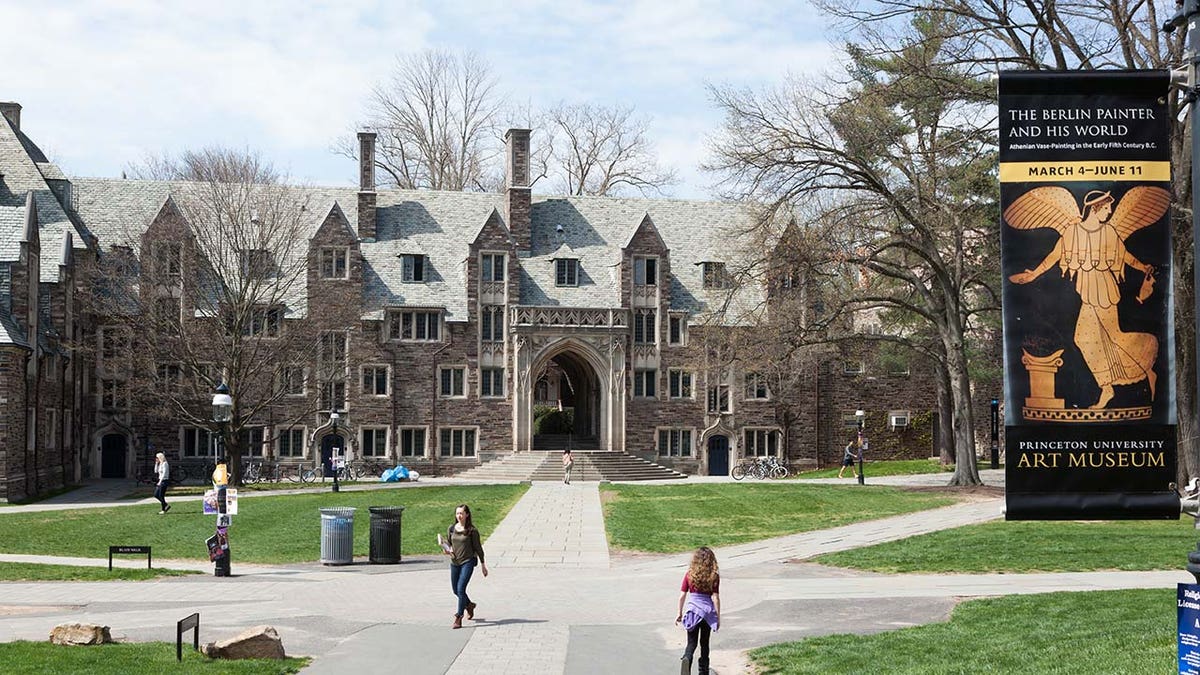Fox News Flash top headlines for December 15
Fox News Flash top headlines are here. Check out what's clicking on Foxnews.com.
Two Ivy League universities announced Tuesday that they would shift to remote formats over concerns regarding the omicron variant of the coronavirus.
In a message to students, New York's Cornell University said that it was moving to "Alert Level Red" following a message on Saturday that the institution had seen a spike in COVID-19 cases.
"Since our Saturday message, our surveillance testing has continued to identify the rapid spread of COVID-19 among our student population. While faculty and staff case numbers currently remain low, just last evening our COVID-19 testing lab team identified evidence of the highly contagious omicron variant in a significant number of Monday’s positive student samples," Cornell's President Martha E. Pollack said in a letter. "As a result, and out of an abundance of caution, the university is moving to Alert Level Red and announcing a number of immediate measures, outlined below."
COVID-19 PANDEMIC DEATH TOLL TOPS 800,000 IN U.S.
"I want to make clear that our evidence of omicron is preliminary. PCR testing has identified its hallmark (the so-called S-gene dropout) in a substantial number of virus samples. While we must await confirmatory sequencing information to be sure that the source is omicron, we are proceeding as if it is," she added.
Pollack called on the Ithaca campus to help limit further spread ahead of the end of the semester, including moving final examinations to an online format, canceling all university-sponsored events and activities involving undergraduates, canceling the Saturday recognition ceremony for December graduates, closing libraries and gyms, canceling Sunday athletics competitions and encouraging students to "grab-and-go" meals from Cornell Dining.
Students who have tested negative within the past 48 hours are welcome to leave campus and must complete a departure checklist. Any student who has not tested negative should receive a supplemental test as soon as possible, the president instructed.

Princeton, New Jersey - April 14, 2017: People wander around the Princeton University Campus during early spring. (iStock)
Pollack said that Cornell would continue to assist on-campus residential students who have tested positive in safely isolating, that students should avoid nonessential contact with others, that visitors and guests are not allowed on campus with the exception of people picking up students for break and that mandatory surveillance testing would continue as normal for all employees currently enrolled.
She noted that while there is still much unknown about omicron, it appears to be "significantly more transmissible than delta and other variants," with "some evidence" that it "generally causes milder cases, particularly among vaccinated individuals."
"While I want to provide reassurance that, to date, we have not seen severe illness in any of our infected students, we do have a role to play in reducing the spread of the disease in the broader community," Pollack wrote.
"It is obviously extremely dispiriting to have to take these steps. However, since the start of the pandemic, our commitment has been to follow the science and do all we can to protect the health of our faculty, staff, and students," she said.
WHO DIRECTOR WARNS OMICRON SPREADING AT RATE 'NOT SEEN WITH ANY PREVIOUS' VARIANT
Cornell has required regular surveillance testing for unvaccinated students since the start of the academic year and weekly testing for vaccinated students.
New York state had recorded 38 confirmed cases of the omicron variant as of Tuesday,
In neighboring New Jersey, Princeton University's Dean Jill Dolan and Vice President. W. Rochelle Calhoun wrote to let undergraduate students know that they would be implementing a similar change, shifting all final examinations to a remote format beginning on Thursday.
"The state of New Jersey requires anyone testing positive for COVID to isolate for 10 days, whether or not they’re symptomatic. Given that we’ve seen an uptick in cases among undergraduates during the last 24 hours –including suspected cases of the highly contagious omicron variant – we hope to avoid letting the final exam schedule interfere with students’ travel home for winter break," the pair said in a letter. "We certainly don’t want you remaining on campus in required isolation through the holidays."
Students in Continuous Housing over the winter break will be accommodated as planned, with athletic competitions proceeding with some mitigations and meals served as scheduled and with take-out options.
People who are unable to change travel plans will be allowed to stay on campus until Dec. 23 at noon ET.
Faculty were given the option to either keep the beginning time and date of the registrar-scheduled test but administer it remotely or turn the examination into a take-home due by Dec. 20.
"Because of this increase in cases, the entire Princeton community must now cancel or postpone all indoor gatherings with food, and those where face coverings can’t be worn, effective Thursday, December 16 through Friday, January 7, 2022. Dining will begin offering additional grab-and-go options. The university will revisit its gatherings guidance before January 7th and update our public health policies accordingly," Dolan and Calhoun noted, adding that Princeton plans to institute a booster mandate ahead of the spring semester.
CLICK HERE TO GET THE FOX NEWS APP
All eligible students, faculty and staff are required to get a booster shot by Jan. 31, 2022.
Cornell and Princeton both report student vaccination rates of more than 98%.
New Jersey health officials announced the state's second omicron case on Friday. U.S. Centers for Disease Control and Prevention (CDC) Director Dr. Rochelle Walensky said Tuesday that genomic sequencing is detecting omicron at a rate of about 13% in the two states versus 3% nationally,
Scientists are currently working to understand omicron's transmissibility, severity and ability to evade immune protection and vaccines.
The Associated Press contributed to this report.











































